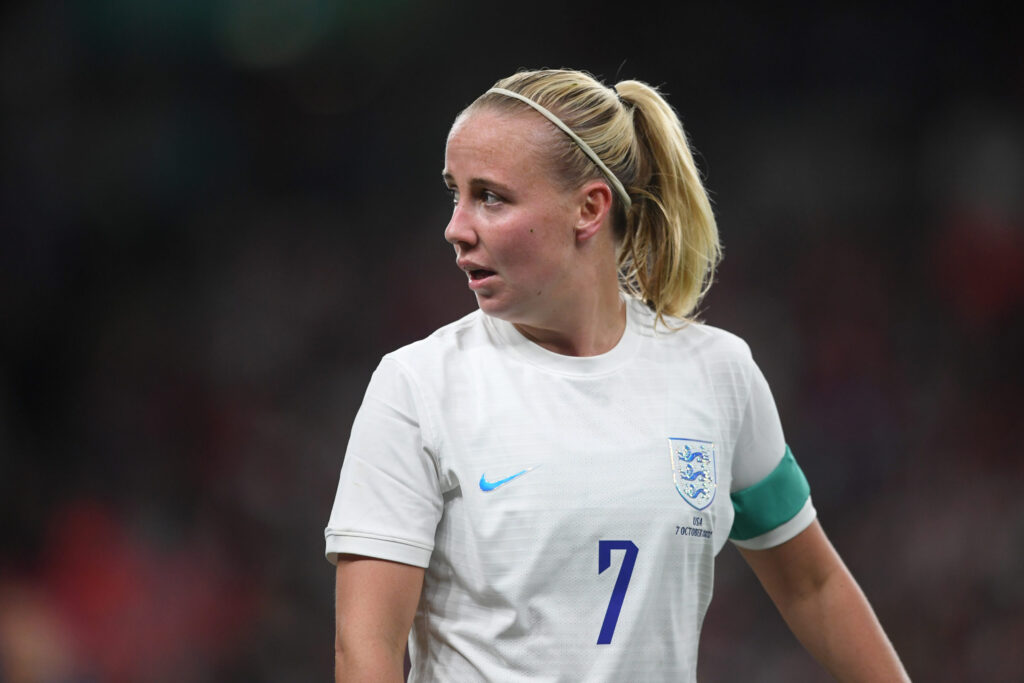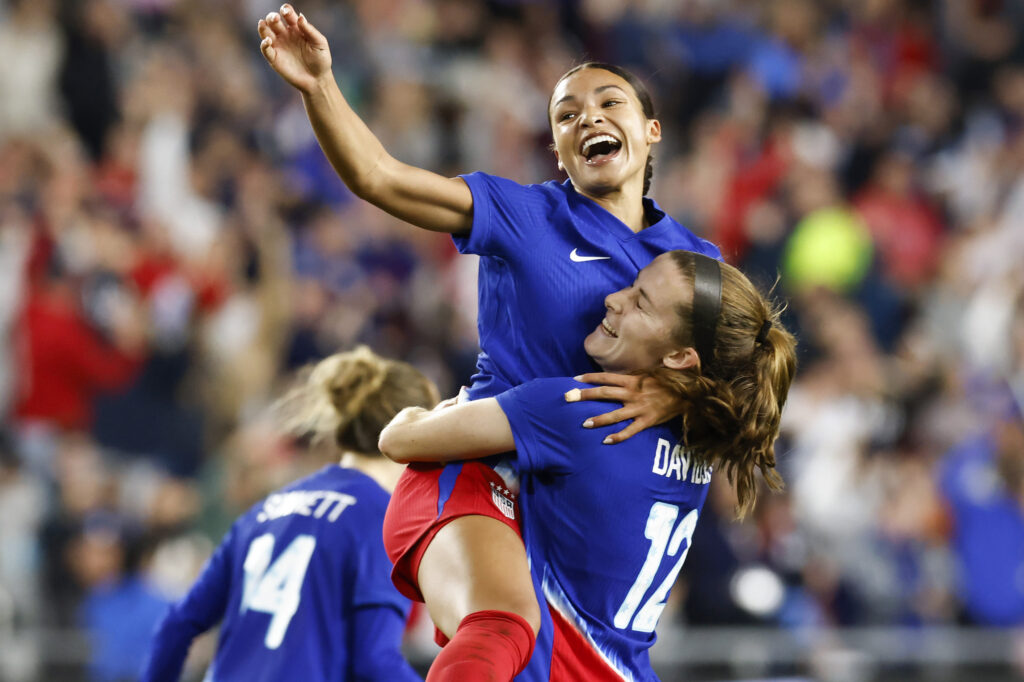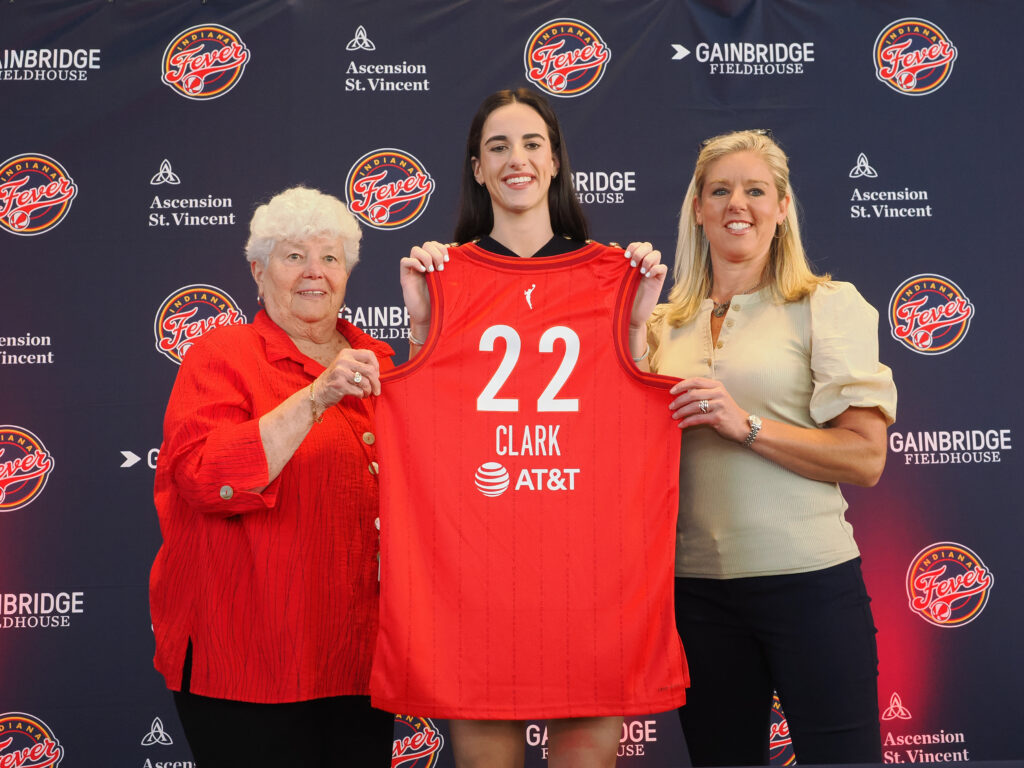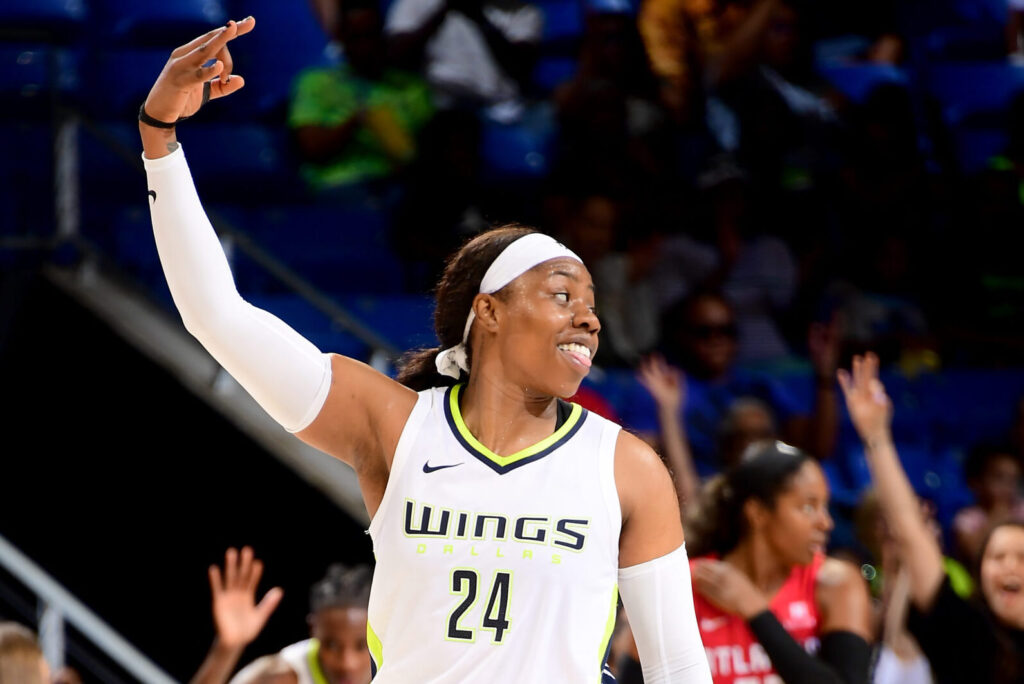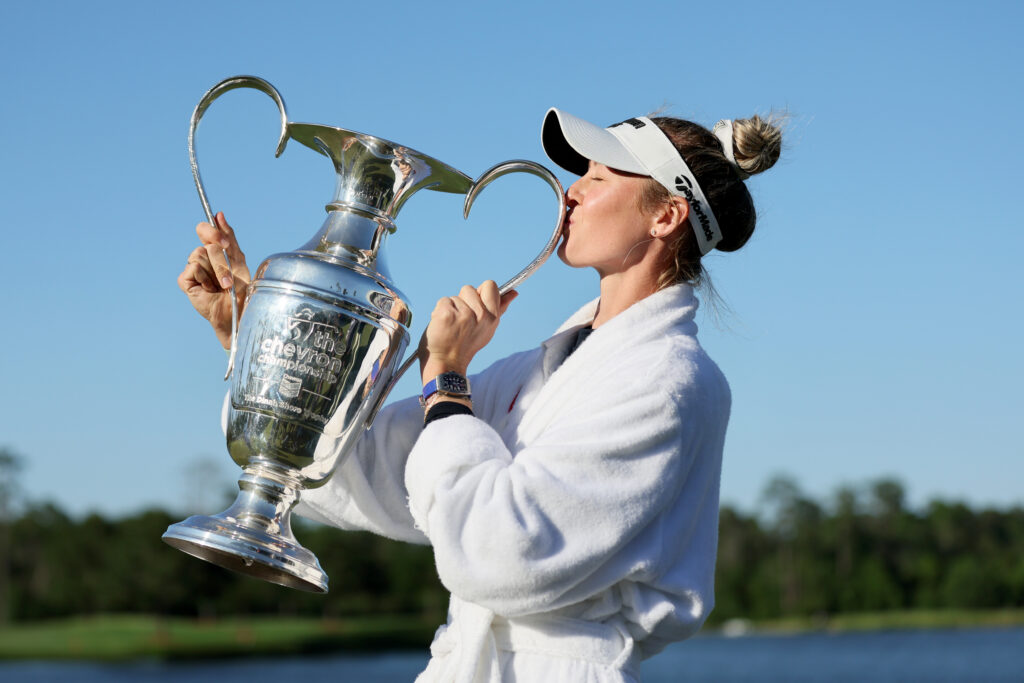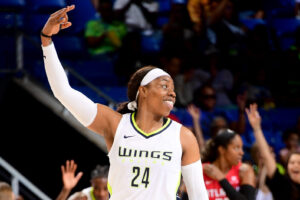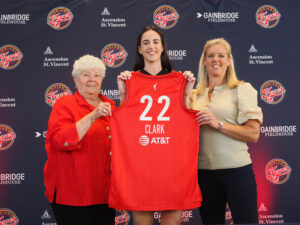When BBC Women’s Footballer of the Year Beth Mead sat down for a conversation with The Guardian to promote her new book, “Lioness: My Journey to Glory,” she touched on her mother’s battle with cancer as well as personal struggles that led to her on-field success.
But when asked about the England women’s national football team’s lack of diversity, Mead, a forward for Arsenal and the Lionesses, dismissed concerns of racism in elite women’s football, calling the makeup of the team’s roster “coincidental.”
Just three Black players featured on England’s Euros-winning squad: Jess Carter, Demi Stokes and Nikita Parris.
“I think it’s completely coincidental,” Mead said. “We put out our best 11 and you don’t think of anyone’s race or anything like that. I think that’s more an outsider’s perspective.”
Mead did mention that more should be done to make sure football is accessible to everyone at a grassroots level, but she didn’t see racism as a concern at the elite level of the women’s game, The Guardian reported.
Amid the Lionesses’ historic run in July, former England international Anita Asante criticized England’s player pipeline for creating exclusivity that bars many girls of color from playing at the highest levels.
“Like England, France have reached the quarter-finals of Euro 2022, but unlike the Lionesses their 23-woman squad contains 15 black or brown players,” she wrote.
Asante went on to note that the scouting process in England doesn’t have enough resources or “the imagination required to look in the right places.” She also spotlighted how coaches of color are rarely promoted or seen, and how a lack of resources to travel for training or games can be prohibitive to underserved populations.
“Visibility – or the lack of it – remains the biggest problem,” Assante concluded.
Current England captain Leah Williamson also has addressed the team’s lack of diversity head-on, telling BBC Sport in October: “Within the squad, this is an important issue and we’re all aware of it. There’s nothing that we can do right now to change it.”
Lotte Wubben-Moy, a teammate of Mead and Williamson on Arsenal and England, also discussed the issue with BBC Sport.
“I’m from London, I see a lot of deprivation,” Wubben-Moy said. “I see a lot of young children who don’t have opportunities. And while I feel like I have responsibility to talk about it, I think everyone does.”
Less than 10% of the 300 players in the Women’s Super League are players of color, The Athletic reported in July, much lower than the estimated 33% in the men’s Premier League.
“The visibility, the accessibility, all of those things from the bottom need to be better so that we don’t lose the diversity of the game,” Williamson said.
The Lionesses also have faced allegations of racism within their program in the past. In 2017, Angel City FC director of recruitment Eni Aluko, who played for England at the time, accused then-manager Mark Sampson of making racist comments. Incidents included making a joke about Ebola towards Nigerian-born Aluko and asking forward Drew Spence how many times she had been arrested.
The English FA eventually formally apologized to Aluko for her experiences. Sampson’s tenure ended before Mead’s first call-up to the England first team.
In contrast with her comments on diversity, Mead has spoken out about other social issues, most recently in relation to the men’s World Cup that will be held in Qatar in November.
Last week, Mead — who is openly in a relationship with Arsenal teammate Vivianne Miedema — told BBC Radio 4 that Qatar’s laws banning homosexuality were “the complete opposite to what I believe and respect,” and that she would not be backing or promoting the event.
“Although I’m cheering for the boys who are going to play football there, from the minute it was announced I thought it wasn’t the best idea,” she said. “We’re in the 21st century and you fall in love with who you fall in love with. It doesn’t matter who they are.”
